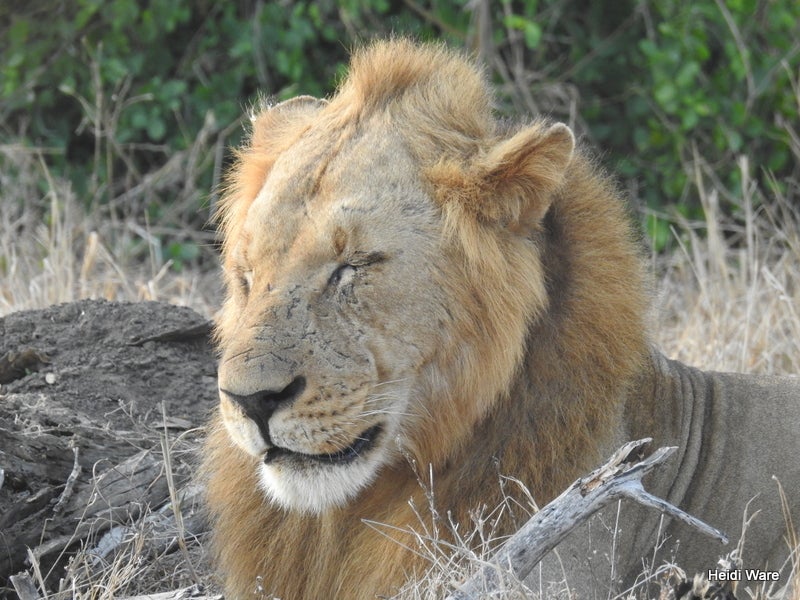In 2014, IBO formed a partnership with the Gorongosa Restoration Project, which in ~3 short years already includes IBO’s research on vultures and other raptors as well as mentoring young Mozambican scientists. Since the start of this partnership we’ve had a goal of helping boost American ecotourism to Gorongosa National Park in Mozambique.
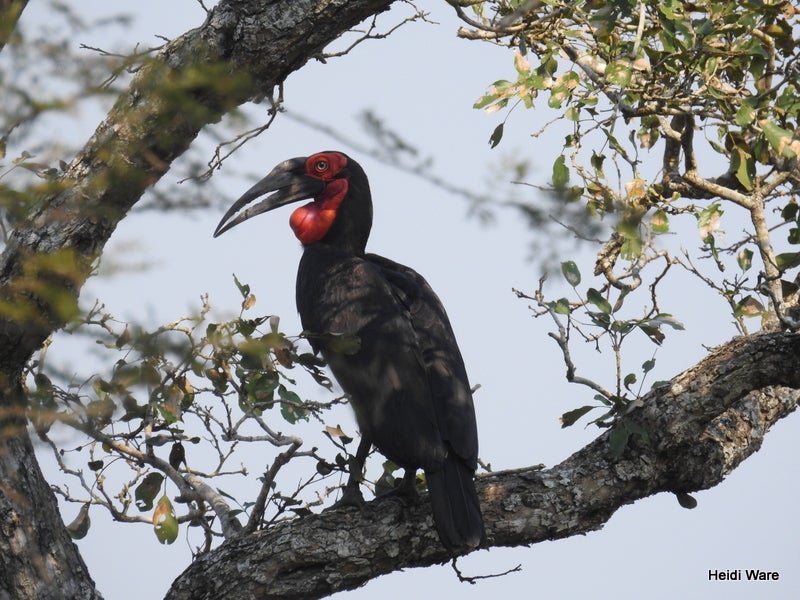
Mozambique, and Gorongosa in particular, has great bird diversity and a number of species hard to see elsewhere in southern Africa but is off the beaten path due to decades of political conflict – some of which centered on the park itself – and being one of the poorest countries in the world. However, the last decade has witnessed the recovery of many of the wildlife species in Gorongosa while the park and restoration project seek to build sustainable human communities around the park.
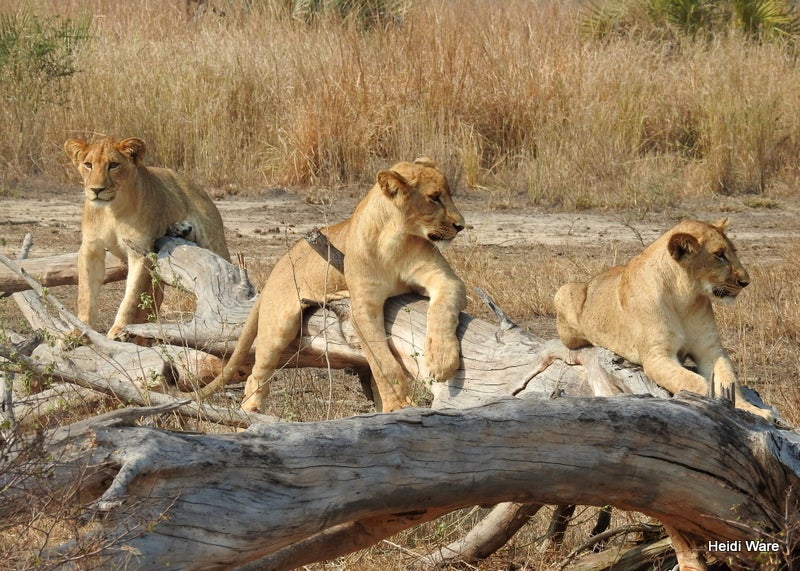
Jay worked with Alastair Kilpin of Mammoth Safaris to build an itinerary rich with mammal and bird diversity to provide a potential “once-in-a-lifetime” trip to Africa. We settled upon a 15-day itinerary with 3 main destinations in Mozambique and South Africa – Gorongosa National Park, Kruger National Park (Private Reserves), and Cape Town – with single-day excursions to Johannesburg and Dullstroom in South Africa and Beira, Mozambique. Our group of enthusiastic travelers meshed very well and were fun to explore with. We also really enjoyed working with Alastair – a great birder and safari guide who was easy to work and travel with – and the many talented local guides that helped us at each destination.
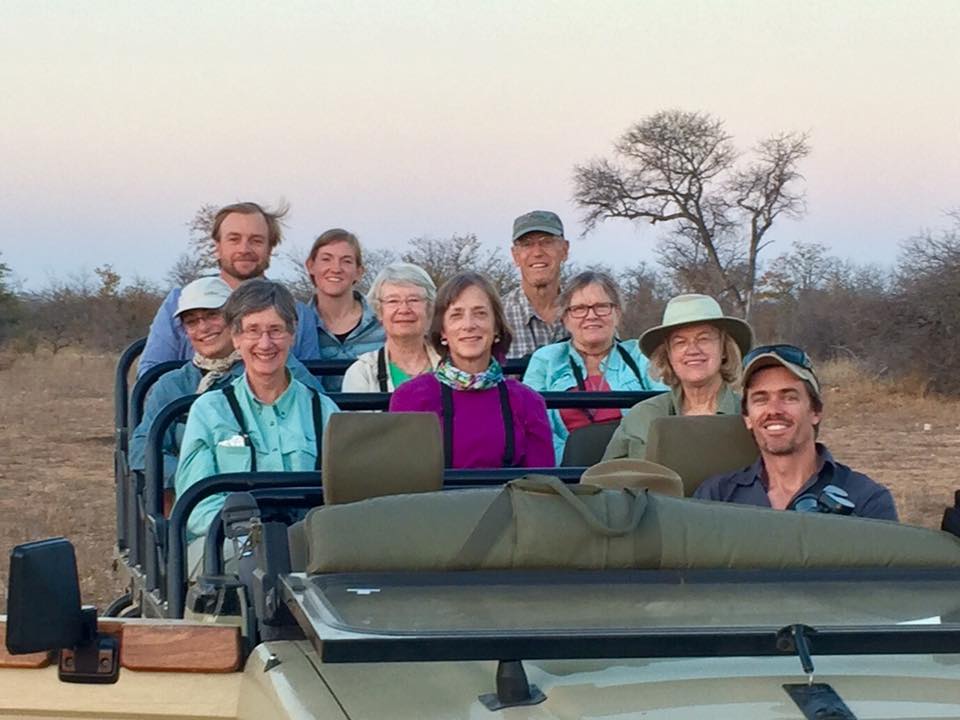
We found a whopping 399 bird species, of which 383 were well seen by the group. This included:
- 100+ life birds for all participants (and over 360 lifers for those new to Africa!)
- Representatives of 15 bird families endemic to Africa
- Ostrich (1 species)
- Guineafowl (1)
- Hamerkop (1)
- Turacos (2)
- Mousebirds (3)
- Wood-hoopoes (2)
- Ground Hornbills (1)
- African Barbets (4)
- Wattle-eyes & Batises (4)
- Helmetshrikes (2)
- Bushshrikes (8)
- Rockjumpers (1)
- Crombecs and African Warblers (4)
- Sugarbirds (1)
- Oxpeckers (1)
- Plus, we heard a tantalizingly distant Striped Flufftail
- And well over 50 species endemic to southern Africa
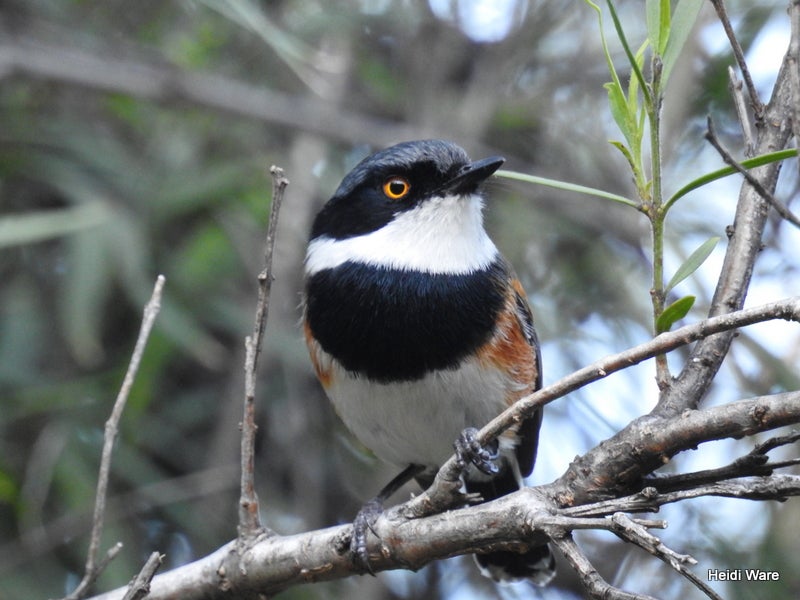
We also had sightings of 51 mammal species (!!) in addition to tracks of several other species:
- These included hyrax, elephant, baboons/monkeys, bushbabies, squirrels, hare, dogs, lion, civets & genets, hyena, mongoose, zebra, rhinoceros, warthog, hippos, giraffes, and loads of antelope & relatives – several of which were endemics
Highlights – there were so many that’s it hard to list just a few! On the return flights, Heidi & Jay discussed trying to list their favorite (“top ten”) bird species as well as best moments of the trip. At the risk of leaving out many species and experiences, here’s an attempt at a list:
Favorite birds:
- Double-banded Sandgrouse – they made us wait before giving great views at a watering hole and then in the Mopane woodland.
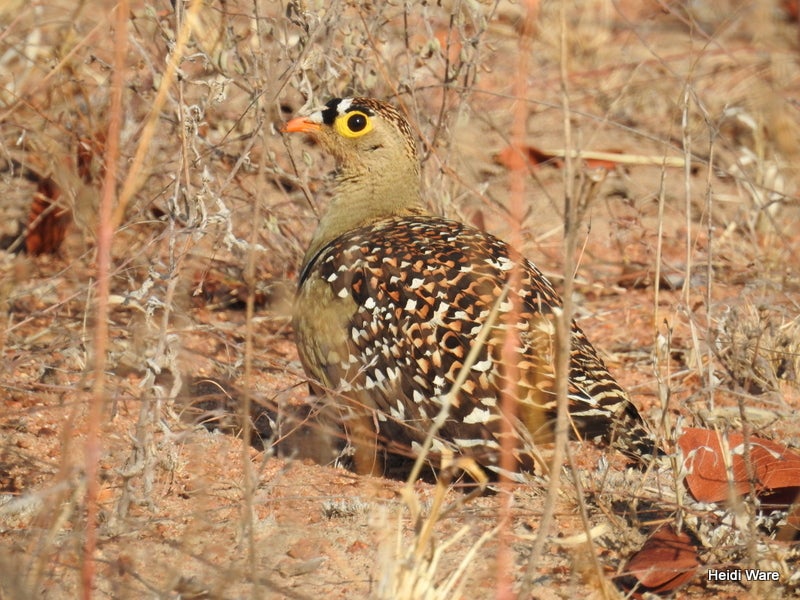
Sandgrouse are not, in fact grouse, but their own unique group of birds! - Common Buttonquail – great, close looks at a pair.
- Collared Pratincole – so many great views, during the day and many hundreds at dusk.
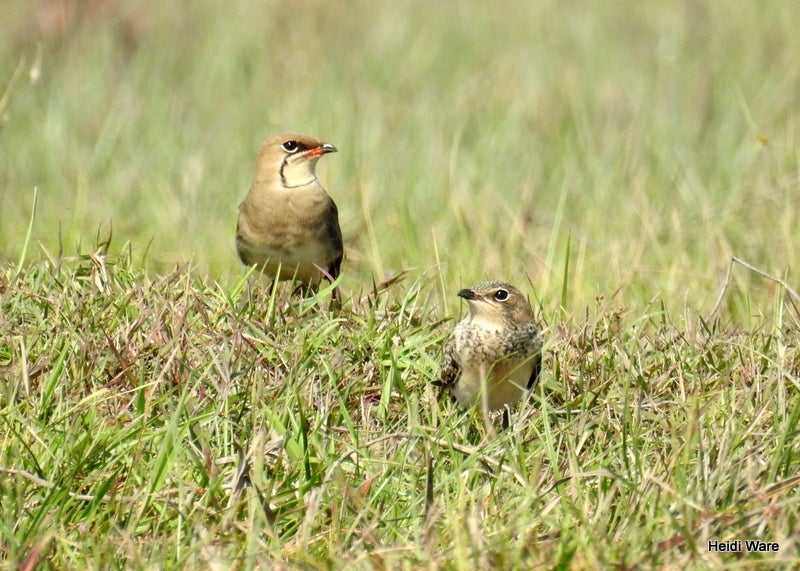
We had excellent views of Collared Pratincoles throughout the trip. This unusual shorebird is much like North America’s Common Nighthawk in both behavior and morphology - Red-throated Wryneck – a great view for half the group in Johannesburg then a cooperative bird for all at Dullstroom.
- Terek Sandpiper – long on Jay’s wishlist, we saw an early arrival at Langebaan lagoon.
- Bronze-winged Courser – close looks at this unique “shorebird” in burnt woodland.
- Verreaux’s Eagle – what a great looking eagle … and at a nest!
- Cape Rockjumper – great color patterns on a cooperative pair.
- Taita Falcon – sad to see a solo male of this rare species but a neat sighting (& we just got word through Alastair that a female has been sighted at this famous nesting spot for the first time since the prior female disappeared several years ago!)
- Black Harrier – a stunningly unique (& endemic) harrier.
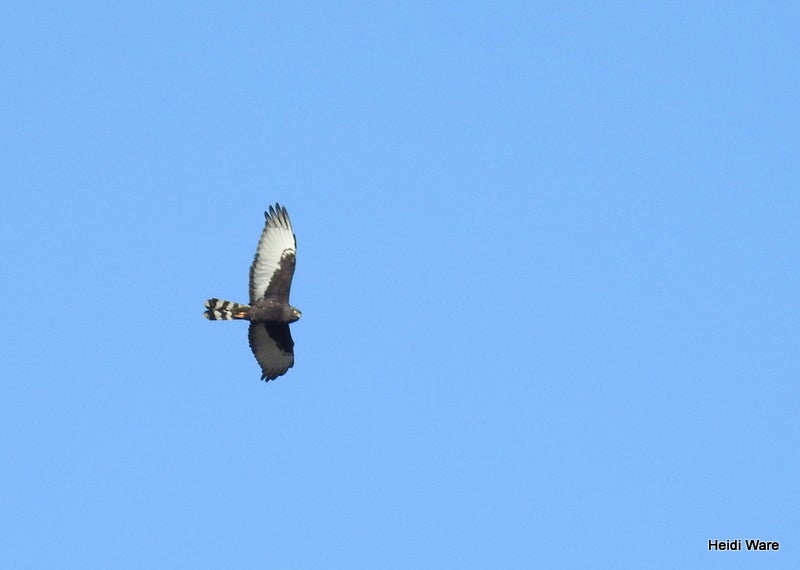
Favorite moments:
- Wild dogs (!) in Kruger, including pups
- Flight to Gorongosa from Beira to see the surrounding landscape
- Roaring lions at dusk
- Bathing adult and juvenile male elephants
- Howling hyena (very close to us)
- 24+ species “bird party” with Stierling’s Wren-warbler in Gorongosa that had Alastair & Test (lead guide in Gorongosa) giddy

Denning Wild Dogs with pups were a highlight in Kruger National Park - Great Bittern – a lifer for Alastair on our first morning with him
- Mousebirds racing alongside our van for ~500 yards @ over 35km/hour
- Pelagic feeding frenzy with 3 species of albatross plus petrels and shearwaters
- A distant meerkat south of Johannesburg (Suikerbosrand)
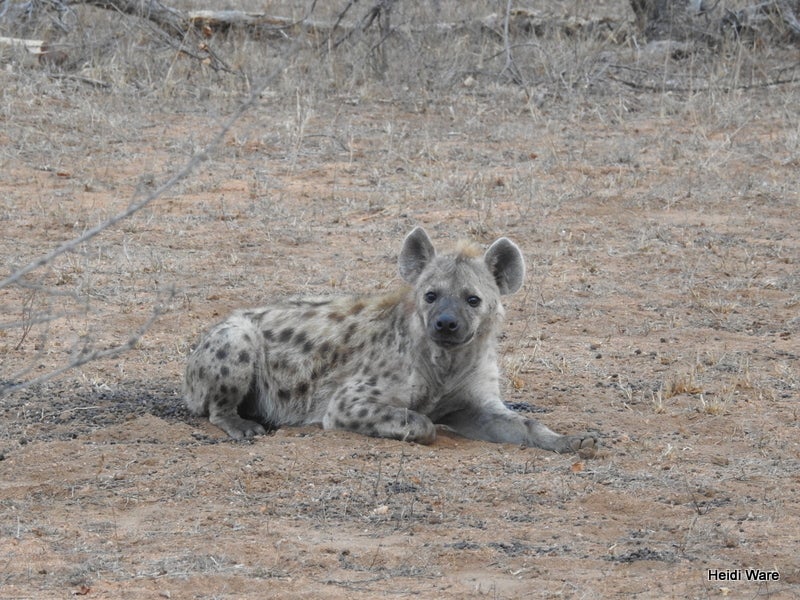
We highly recommend considering Mozambique and South Africa for a future birding trip – you’ll be wowed by all the mammals and the birds will blow your mind :-) . And, after how well this pilot trip went, this won’t be our last trip to Africa! Let Jay know if you’d be interested.
Read more about our trip from Alastair’s perspective in this Mammoth Safaris blog post: “Gorongosa Revisited“.
